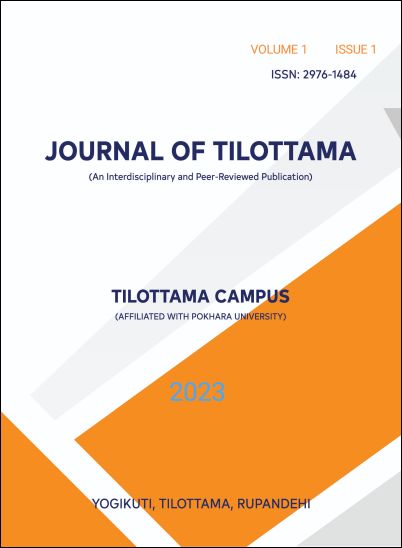Civil Society, Governance and Justice: A Critique in Global Context
DOI:
https://doi.org/10.3126/jtilottama.v1i1.64554Keywords:
Civil Society, Governance, Justice, Trajectory, Egalitarian Society, CSOs, Equitable WorldAbstract
The paper attempts to examine civil society, governance, justice in the current globalized context. In doing so, it makes a critical survey of the key works starting from Plato to the theorists in the present. Based on the qualitative and interpretive inquiry, this paper scrutinizes the secondary sources and discusses the interfaces between /among these works. Civil society, as a concept and reality, has traversed a complex trajectory across historical phases, shaping and being shaped by political, social, and cultural forces. This research paper explores the evolution of civil society on a global scale, tracing its origins from ancient philosophical foundations to its multifaceted roles in contemporary society. The study delves into key historical periods and the ideologies that have shaped civil society’s development, analyzing how its functions, scope, and impact have evolved over time. By examining the interplay between civil society and various socio-political contexts, this paper offers insights into the dynamic relationship between citizen participation, governance, and societal progress. The paper finally concludes that creating an egalitarian society through civil society organizations is a noble goal, but it is one that has not been fully realized in practice. it is important to be realistic about the challenges involved. It will take a sustained effort from civil society organizations (CSO), governments, and individuals to create a more just and equitable world.
Downloads
Downloads
Published
How to Cite
Issue
Section
License
Copyright (c) 2023 Tilottama Campus

This work is licensed under a Creative Commons Attribution-NonCommercial 4.0 International License.
This license enables reusers to distribute, remix, adapt, and build upon the material in any medium or format for noncommercial purposes only, and only so long as attribution is given to the creator.




